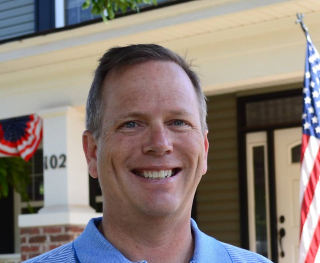If you had asked me a few months ago where you should mail your VA non-service-connected (NSC) disability pension claims, I would have answered with conviction . . . it depends! I’m not trying to be funny, it’s just that it literally depended on the state where the claimant resides. Every state is served by one of three Pension Management Centers (PMC): Philadelphia, Milwaukee, or St. Paul. Philadelphia, PA serves the eastern states; Milwaukee, WI serves the central states; and St. Paul, MN serves the rest of the states from Minnesota to the west coast. Alaska and Hawaii are served by the St. Paul PMC as well. Claimants living in Mexico, Central and South America, and the Caribbean should file in St. Paul for NSC disability pension claims and appeals of those claims. Residents of all other foreign countries should file such claims at Philadelphia’s PMC. See Resources below for mailing addresses and a list of all corresponding states and countries. The Pension Management Centers, as their name suggests, focus on pension benefits and do not handle any service-connected-disability compensation claims, or claims for both compensation and NSC disability pension, sometimes called dual claims.
 Title 38 of the Code of Federal Regulations (CFR) §3.155 on “How to file a claim” begins, “The following paragraphs describe the manner and methods in which a claim can be initiated and filed,” but in all the detail that follows, nowhere does it tell you where specifically to mail a claim. The VA Adjudication manual M21-1 similarly fails to give such particulars. If you search online for “how to apply for veterans’ benefits,” you may eventually end up at the VA website that – as of the time this was written – still clearly directs you to “mail your application to the Pension Management Center (PMC) that serves your state.” However, since last year, rumblings of a change have begun to be heard that the mailing process may be undergoing an update.
Title 38 of the Code of Federal Regulations (CFR) §3.155 on “How to file a claim” begins, “The following paragraphs describe the manner and methods in which a claim can be initiated and filed,” but in all the detail that follows, nowhere does it tell you where specifically to mail a claim. The VA Adjudication manual M21-1 similarly fails to give such particulars. If you search online for “how to apply for veterans’ benefits,” you may eventually end up at the VA website that – as of the time this was written – still clearly directs you to “mail your application to the Pension Management Center (PMC) that serves your state.” However, since last year, rumblings of a change have begun to be heard that the mailing process may be undergoing an update.
That brings us to Janesville, WI, which may be familiar to those who file service-connected-disability compensation claims, but may not be to those of us who deal exclusively with NSC disability claims. It is the Janesville Evidence Intake Center (EIC) in Wisconsin where all claimants residing in states roughly west of the Mississippi have been filing service-connected-disability compensation claims for some time. However, Janesville may become the hub of a centralized mail intake system for all veterans’ pension AND compensation claims from all over the world. Since last year, the VA has periodically inserted with their correspondence the directive that all mail should now be sent to a PO box at the EIC in Janesville. In addition, an 11-page VA fact sheet on centralized mail processing was quietly issued in March 2016 stating that “New addresses for the submission of material went into effect on July 7, 2014.”
Per this fact sheet, the U.S. Postal Service is apparently automatically redirecting material that is mailed to Regional Offices or PMCs to Janesville. Specific PO boxes have been designated to specific categories of claims. However, from this hub, the claim will eventually be routed back to the pension management center where you are currently sending your claims for processing. Therefore, those who have been routinely filing NSC disability pension claims at the appropriate PMC may now be faced with a dilemma: obey the “new” – and by no means widely-known – directive, or continue as before. At our law firm, except for replies to VA letters that provide a specific return address, we continue to file all our claims at the appropriate PMC. Some law firms, in an abundance of caution, have started filing at both the PMC and the Janesville EIC. And yet others use only the addresses and fax number in Janesville that are given on the fact sheet.
So ask me today where you should mail your VA non-service-connected (NSC) disability pension claims and I will answer with conviction that you should take your pick – from the addresses provided below in the Resources section.
Resources
Philadelphia VA Regional Office
5000 Wissahickon Ave.
PO Box 8079
Philadelphia, PA 19101
Fax #: (215) 842-4410
Service Area: Connecticut, Delaware, Florida, Georgia, Maine , Maryland, Massachusetts, New Hampshire, New Jersey, New York, North Carolina, Pennsylvania, Puerto Rico, Rhode Island, South Carolina, Vermont, Virginia, West Virginia, all foreign countries other than Mexico, Central and South America, and the Caribbean
Milwaukee VA Pension Center
PO Box 342000
Milwaukee, WI 53234-9907
Fax #: (215) 842-4430
Service Area: Alabama, Arkansas, Illinois, Indiana, Kentucky, Louisiana, Michigan, Mississippi, Missouri, Ohio, Tennessee, Wisconsin
St. Paul VA Regional Office
Pension Management Center (335/21P)
PO BOX 11000
St. Paul, MN 55111-0000
Fax #: (215) 842-4420
Service Area: Alaska, Arizona, California, Colorado, Hawaii, Idaho, Iowa, Kansas, Minnesota, Montana, Nebraska, North Dakota, New Mexico, Nevada, Oklahoma, Oregon, South Dakota, Texas, Utah, Washington, Wyoming, Mexico, Central and South America, and the Caribbean
Janesville Evidence Intake Center
Fax #: (844) 822-5246
Philadelphia PMC
Dept. of Veterans Affairs
Claims Intake Center
Attention: Philadelphia Pension Center
PO Box 5206
Janesville, WI 53547-5206
St. Paul PMC
Dept. of Veterans Affairs
Claims Intake Center
Attention: St. Paul Pension Center
PO Box 5365
Janesville, WI 53547-5365
Milwaukee PMC
Dept. of Veterans Affairs
Claims Intake Center
Attention: Milwaukee Pension Center
PO Box 5192
Janesville, WI 53547-5192
If you would like to learn more about becoming a Lawyers With Purpose member join us for our FREE webinar "Running Your Firm Like A Business" on Wednesday, July 27th at 8 EST / 5 PST. Click here to reserve your spot today.
By Sabrina A. Scott, Paralegal, The Elder & Disability Law Firm of Victoria L. Collier, PC and Director of VA Services for Lawyers with Purpose.
Victoria L. Collier, Veteran of the United States Air Force, 1989-1995 and United States Army Reserves, 2001-2004. Victoria is a Certified Elder Law Attorney through the National Elder Law Foundation; Author of “47 Secret Veterans Benefits for Seniors”; Author of “Paying for Long Term Care: Financial Help for Wartime Veterans: The VA Aid & Attendance Benefit”; Founder of The Elder & Disability Law Firm of Victoria L. Collier, PC; Co-Founder of Lawyers with Purpose: and Co-Founder of Veterans Advocate Group of America.
 My daughter and I have a daily ritual. Each morning she bids me farewell to “make some money.” Each evening she asks me, “Mommy, how was your day?” and “Did you make any money?” One day I responded with, “Yes, we made $5,350 today.” She inquired, “Is that a lot of money?” I replied, “Yes, to some people that is a lot; however, Mommy didn’t make her goal today.” Sometimes when she asks, I tell her that we didn’t make any money that day because it was a business development day, when I meet other professionals instead of clients.
My daughter and I have a daily ritual. Each morning she bids me farewell to “make some money.” Each evening she asks me, “Mommy, how was your day?” and “Did you make any money?” One day I responded with, “Yes, we made $5,350 today.” She inquired, “Is that a lot of money?” I replied, “Yes, to some people that is a lot; however, Mommy didn’t make her goal today.” Sometimes when she asks, I tell her that we didn’t make any money that day because it was a business development day, when I meet other professionals instead of clients.









